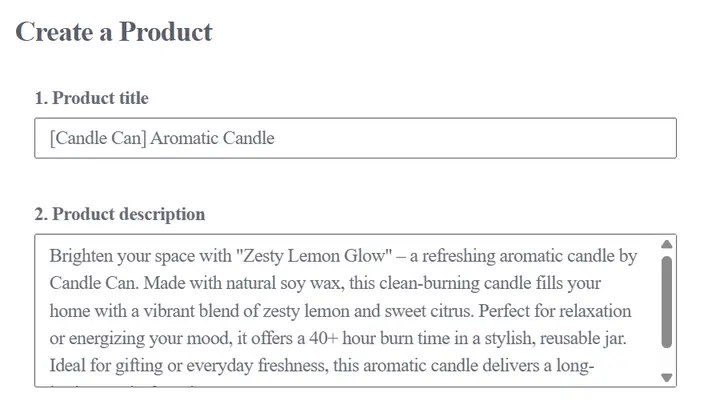Beginner’s Definitive Guide to Online Store SEO: A Blueprint for New Entrepreneurs
This comprehensive guide equips you with everything you need to know about setting up effective SEO for your online store.
This comprehensive guide equips you with everything you need to know about setting up effective SEO for your online store.

Are you a new online store owner eager to boost your store’s visibility and drive sales? Look no further. This comprehensive guide equips you with everything you need to know about setting up effective SEO for your online store.
Content
SEO, short for Search Engine Optimization, is a cornerstone of website optimization for online store owners. It’s a strategic approach that aligns your website’s content with search engine algorithms and standards through a series of technical and content - focused strategies. By doing so, SEO helps your online store rank higher on search engines. This increased ranking leads to greater website exposure, more organic traffic, and ultimately, a significant boost in sales performance.
Google’s AI meticulously evaluates the quality and relevance of your website content. High-quality, valuable, and engaging content takes precedence. Valuable content encompasses product reviews, vivid images, and engaging videos. For instance, images and videos can transform complex product information into easily understandable visuals, making your content more appealing to users.
Google’s algorithm analyzes the keywords within your website content, assessing their relevance and proper usage. It’s crucial to avoid keyword stuffing, as search engines view this as spam. Overusing keywords can lead to a lower ranking or even removal from search results.
The structure and technical integrity of your website are also under the microscope. Factors like page speed, mobile responsiveness, and website security significantly impact the user experience and usability. Design a simple, intuitive website structure to ensure users can effortlessly find the information they seek.
Google AI examines the quality and quantity of external links pointing to your website. High-quality external links enhance your website’s ranking and authority. Conversely, a large number of low-quality or suspiciously purchased links can harm your website’s standing.
User experience is a key determinant. Google AI evaluates aspects such as usability, design, structure, and navigation. These elements directly impact user retention and conversion rates. Understanding user needs and preferences, and providing relevant content and features, is essential. Analytics tools and user surveys can offer valuable insights into user requirements.
SEO and SEM are both integral to website marketing, yet they have distinct goals and approaches:
SEO keywords are the words or phrases in your website content that search engines deem important and relevant. They are the bedrock of website ranking and traffic optimization. Search engines rely on keywords to determine the relevance of your website content to a user’s search intent. If your content aligns with the search intent and contains relevant keywords, your website is more likely to rank higher in search results.
When choosing keywords, don’t solely focus on those with high search volume. Select keywords that are relevant to your business, have a high conversion rate, and offer real value. Here’s a step-by-step process to choose the right SEO keywords:
Incorporate core keywords into product names, titles, and product descriptions. Ensure each product page has a unique and informative description that highlights the product’s features and benefits while including relevant keywords. When adding products on platforms like Boutir, use the free keyword tools’ suggestions to place important keywords in these areas. For example, if your brand is “Candle Can” and your SEO keyword is “Aromatic Candle,” you could name your product “Candle Can Aromatic Candle” and include relevant descriptions.


Create product-introduction videos, how-to guides, or industry-related tips videos. Videos are highly interactive and can increase user engagement and the time users spend on your site. Google currently considers high-quality videos as a ranking factor. Boutir allows you to directly import Instagram Reels onto your online store and product pages, which can significantly improve your website’s search engine ranking.
Prompt customers to leave reviews and testimonials on your website. This not only enhances the authenticity of your business but also influences search engine rankings. Search engines often factor in the number and quality of reviews. A large number of positive reviews can make your website more discoverable.
Offer operation guides and tutorials that show customers how to use your products, solve common problems, or achieve specific goals. This type of content is highly shareable and can attract new visitors. Additionally, frequently asked questions in these guides may appear at the top of Google search results, making it easier for users to find answers.
Maintain a blog to share industry-relevant information, answer common questions, address customer concerns, and announce product updates. By creating diverse, high-quality, and user-centric content, you can improve your website’s search engine ranking and drive targeted traffic to your online store.
Start Selling With Boutir Today!
Got Questions? Speak to one of our sales consultants.
FB Messenger / WhatsApp / Email
Service Hour:
CONTACT US
Start your 14-day free trial of Boutir, no credit card required. Flexibly choose a plan according to your needs and immediately create your all-in-one online store!